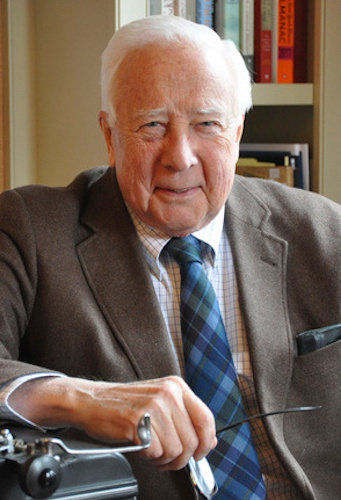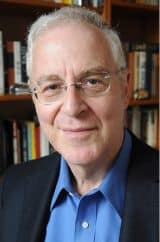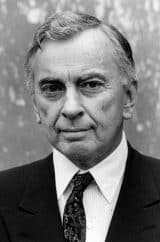 Bio
Bio
David McCullough, with full name David Gaub McCullough, was born on the 7th of July, 1933, in Pittsburgh, Pennsylvania. David is an American historian. The biographies that he had written and published were marked by extensive research, and were received with praise from critics and thus became very popular.
McCullough, in the year of 1955, acquired his Bachelor’s degree from Yale University, in the subject of English literature. Post-graduation, David travelled to New York City, taking a job at Time-Life’s Sports Illustrated magazine. In 1961, David moved once more, this time to Washington, D.C. and took up a job with the United States Information Agency.
Best David McCullough Books
| Photo | Title | Rating | Length | Buy |
|---|---|---|---|---|

|
Truman | 9.96/10 | 1120 Pages | Check Price On Amazon |

|
The Wright Brothers | 9.92/10 | 320 Pages | Check Price On Amazon |

|
1776 | 9.84/10 | 386 Pages | Check Price On Amazon |

|
John Adams | 9.82/10 | 751 Pages | Check Price On Amazon |

|
The Great Bridge | 9.76/10 | 609 Pages | Check Price On Amazon |
Career
That post was left in 1963, and David began working as an editor for the American Heritage Publishing Company. During this time, having already began, David continued working on The Johnstown Flood. The subsequent success of the book encouraged David to up and quit his job in 1970, as he began working as a full-time writer.
During his career, McCullough has received two Pulitzer awards, two National Book Awards, along with two Francis Parkman Prizes. The 1995 Charles Frankel Prize of the National Endowment for the Humanities and the 2006 Presidential Medal of Freedom were other awards that found their way to David’s collection. David’s work is very loved and as such, we think that it is high-time that we took a look at what the best David McCullough books actually are.
Truman

 Behemoth
Behemoth
Truman is a 1992 biography of the eminent and infinitely important United States president Harry S. Truman. Though the size might resemble that of a loose, lengthy behemoth, the biography itself is a spellbinding, engaging and all-around enthralling piece of literary efforts.
Harry S. Truman is most known for his allowing and ordering of the dropping of the atomic bombs in Japan. Aside from that, the Marshall Plan’s initiation, helped in the creation of NATO and the Berlin Airlift, desegregation of armed forces, helped and proceeded with the establishment of the Central Intelligence Agency, sent United States forces to the territory of Korea.
Ordinary Man
Truman, himself, was a plain-spoken, ordinary man from Missouri. Prior to becoming the president, Truman was often at odds against overwhelming and intimidating forces; he was a failed farmer and a captain during the first World War that kept his unit intact even during period of hell-fire.
The narrative quickly gains speed, and we see how the life of Truman progressed and went following his becoming the president after Roosevelt met his demise. McCullough goes deep in his attempt to illustrate the truth, which was that Truman was a stand-up person, with a clear mind, and a politician that wasn’t willing to deceive, commit subterfuge or cower at the face of intimidation. Descriptive and brimming with interesting details to the point of overflowing, Truman is the quintessential politician’s biography.
The Wright Brothers
 Changing History
Changing History
The Wright Brothers is an endlessly intriguing, meticulously detailed and fine work. Released only five years ago, McCullough hasn’t lost any steam even after having written in three different decades.
The author’s prowess and will know no bound – and so did the Wright Brothers as they set off for an unbound trip cutting the air at perfect angle and changing history.
Vibrant Story
It only makes sense for the undisputed king of biographies and award-winning historian to write the passionate biography of the two Ohio brothers. The narrative picks up with the brief, though vibrant story of the things going on in the Wright household – long story, short: it wasn’t the brightest childhood you can imagine. The mother had fallen sick and died from a vicious case of tuberculosis. The father was scarcely at home, so that the three children – the two brothers and sister Katharine – had to keep the home in prime condition.
Immense Meaning
The genius and virtuoso-like ideas and aspirations that the brother had had been present since their youth. First in a print shop, and then, subsequently, in a bicycle shop. Full of interesting tidbits, rarely-known experiences and stories from their youth and older years, The Wright Brothers is a book of immense meaning.
The author writes with a distinct style, making each word gain deeper meaning in context of the subject-matter. In more ways than one, The Wright Brothers is an engrossing, captivating tale of history-altering proportions. The best biography of its kind, by a wide margin.
1776

 Masterpiece
Masterpiece
1776 is a 2005 release by grand historian and biographer David McCullough. The book consists of barely half the length of the previous entry, though the substance and depths of the literary effort are not lost in the slightest.
McCullough maintains the traditional, old-fashion penchant and adoration he has for the leaders’ tradition, which while doesn’t always guarantee complete shrewdness and insightfulness, does, however, hold the quality needed to make a truly great book.
Dense Account
With that all noted, the reader is highly encouraged to hit the history books prior to beginning this heavy, dense account and story. McCullough isn’t concerning himself with the story of the American Revolution, nor of the War of Independence.
In fact, by the start of the book, the battle of Bunker Hill – 1775 – had already been finished. A group of British soldiers are locked up somewhere in Boston by a small army, an army that doesn’t have the least bit of gunpowder.
Beautiful Beyond Description
McCullough takes up different themes that had been holding back the generations of yore. For instance, he examines how New Englanders wouldn’t wash their clothes as that was the job of a woman, not of a man. This resulted in the decrepitude that was their clothes to decay and rot.
Beautiful beyond description, 1776 acts as a story of wonderful, interesting characters and satisfies any reader looking for a bit of time-travel, but without the hassle of lost time.
John Adams

 Brilliant Work
Brilliant Work
John Adams was published in 2001 by historian McCullough. It features an intimidating 750 pages, but there is scarcely a paragraph or even word wasted in this brilliant, meaningful work.
The ever ambitious and aspiring John Adams might not have been as outgoing in the assuming of a leader’s role during the period of the turbulent, tempestuous period of the American Revolution.
Admirable and Fearless
With that said, his cheeks didn’t color an embarrassed or shy hue when he needed to take up the necessary position, in fact, he took up sizeable and plentiful risks for the cause of the rebellion. Admirable, fearless and bold Adams doesn’t only prove a devoted leader, but also a loyal and proud husband to wife Abigail.
On the other hand, McCullough didn’t do any favors to the perceived image of Thomas Jefferson; the picture painted is one of a lazy, lethargic attitudes that had been adopted by Jefferson, perpetually in trouble.
Political Battles
In spite of the less-than-flattering Jefferson, and their battles on the political stage, both of them shared a common adoration for books, for acquiring knowledge and the idealism concerning the revolution. While Adams is at the center of this work, Jefferson is featured so prominently that the book acquires a biographical air about it for Jefferson.
The book is a grand one, making the life and work of the great John Adams gain a secondary significance as he praises the leader’s disposition and character. Likely David McCullough’s best book.
The Great Bridge

 Great Success
Great Success
When it was first built, many people thought the Brooklyn Bridge was an impossible feat that was destined to fail. The goal, of course, was to connect two rapidly growing and thriving cities: Brooklyn and New York. But many people doubted that the bridge would be successfully built, impeded by either political corruption or technical problems.
Despite all odds, the Brooklyn Bridge was a success, and it became one of the greatest engineering triumphs at that time. But it was so much more than that; it was also a work of art. In itself, the Brooklyn Bridge became a proud American icon and a story for the history books.
Human Aspects
What’s amazing about this historical moment in America is how many different role players there were in bringing the Bridge into existence. It took the best and worst parts of human nature for it to work, and at the center of it all was the stricken engineer, Washington Roebling, and his extraordinary wife, Emily. They both never gave up, even after every setback.
This was the latest David McCullough book that I read, and it is still fresh in my mind. I am lucky enough to have seen the Brooklyn Bridge in person and it is truly a magnificent sight. I was so curious about the history behind it and McCullough is the perfect person to tell the story. The actual engineering side of it hooked me more than I expected, but you will find the human aspect is the most engaging.
The Path Between the Seas

 Creating Something Bigger
Creating Something Bigger
In the mid-nineteenth century, Europeans were playing with the idea of creating a link between the Atlantic and Pacific oceans through the isthmus. Back then, Panama was simply a remote and often overlooked area of Colombia. But everything changed in 1848, when gold was struck in California.
A wave of people from Europe and the United States seeking fortune descended on Panama, looking for the fastest passage to California. The best they had at that time was a railroad, but it soon became clear that something bigger and better was needed to deal with all the traffic.
Worldwide Effort
For some people, building a 51-mile-long canal for ships seemed easy enough, but to others, they saw the gargantuan effort that would be needed for it to succeed. Thousands of workers from all over the world would come together over four decades, laboring away. But everything came together when Theodore Roosevelt got America involved by purchasing the canal.
In doing so, Roosevelt created a revolution, one that took Panama right out from Colombia and into their own hands. Many years later and the ownership of the Panama Canal was finally given to the nation of Panama. This is a really interesting story and it is big on details. There is a wonder to this canal that will stick with you for a time.
The Johnstown Flood

 Big Boom
Big Boom
At the end of the previous century, Johnstown in Pennsylvania was booming. Filled with hard workers and thriving in the production of coal and steel, the families of Johnstown were working to be part of growing industrial prosperity. And just above this town were mountains where an old earth dam was hastily rebuilt, created for a summer resort where the tycoons of that very industrial industry liked to vacation.
Among this group of tycoons were some names that you may be familiar with: Andrew Mellon, Andrew Carnegie, and Henry Clay Frick. There were repeated warnings about the construction of the dam, but yet, nothing was done. Then, in a great tragedy in 1889, the dam burst, and a mass body of water went down the mountain and crashed into Johnstown.
Irresponsible
Over 2000 people were killed and this tragedy became a massive national scandal. This classic book from David McCullough shares a portrait of what life was like in nineteenth-century America. It was a time filled with confidence, energy and tragedy. An accurate account of this pivotal moment in history, this is not a book you will want to miss.
The biggest takeaway from this book (and the incident) is to never assume that those who are in positions of responsibility are actually being responsible. If you read the reviews for this David McCullough book, you will see how well received it is. He takes more than just the facts and figures of this time in history; he gives us the heart and soul of the story.
Mornings on Horseback

 Years In The Life
Years In The Life
The title obviously gives away who this best book from David McCullough is about, but I will share a little bit more detail to really convince you to give this one a read. Although, truth be told, it’s so good that it probably won’t take much! Spanning 17 years in the life of Theodore Roosevelt, it starts from 1869 when he was just ten years old.
This biography has rave reviews and has been declared a masterpiece by many. We learn things about Roosevelt that weren’t known before. We see how his childhood was marked by severe bouts of asthma and how he struggled into manhood. There are also stories about his parents, and the very uncommon household that he was raised in.
All About Character
McCullough writes about so much from Roosevelt’s history, from his siblings and his first love, to him traveling West to pick up the broken pieces of his life and become a new man. I found this book to be more than just about Theodore Roosevelt’s life and achievements; it was actually a detailed character study on a fascinating man.
McCullough got never-before-seen information from the private Roosevelt family papers, so you best believe there is stuff in this biography that you don’t know. Over and above how interesting this book is, David McCullough is truly at his best, as the writing is also just incredible. But remember, the audio book is equally captivating (so I’ve been told).
The Greater Journey

 Lighter Fluid
Lighter Fluid
The 2011 entry to David McCullough’s best books section, The Greater Journey, is a brilliant and extensively researched study of how time spent in the city of Paris acted as lighter fluid for the fire that burned and acted as vibrant energy for whole generations of genius, most particularly American genius.
The Greater Journey bears a story of aweing, inspiring, and until the release of this book, unmentioned stories of willing, ambitious Americans that set out for Paris. They were doctors, architects, writers and artists, and they went during the period between 1830 and 1900, eager and keen on the accomplishment of their goals and aspirations.
Magical Prose
Worth mentioning is that at the head of McCullough’s biography aren’t just the aforementioned Americans, but also the lively, bustling and thriving city of Paris. The entrancing, magical prose that McCullough writes masterfully so as to portray the spellbinding aura of Paris might be the most powerful point in the descriptive, rich work. The heart of the reader often yearns for a sojourn in the French heaven.
Each of the ambitious men and women are dutifully granted a studious and insightful biography that helps understand what their efforts stemmed from, what they wanted to accomplish and how, in fact, such a feat was come by.
Notable Figures
Notable figures that found themselves aglitter by the spotlight of McCullough’s penmanship were Ralph Waldo Emerson, Henry James, Mary Cassatt, Harriet Beecher Stowe, among others.
The oddest book that McCullough has put out. While others always have America as a focus, this one steps outside of its comfort zone and delivers exceptionally. Fans are always torn about which McCullough book is the best, but this one does frequent the narrower lists, more often than not.
The Pioneers

 The Beginning
The Beginning
‘The Pioneers’ is a fairly new book from David McCullough, having been released in 2019. In this nonfiction book, McCullough rediscovers an important and critical moment in the story of America: the settling in the Northwest Territory by the pioneers who faced incredible hardships to create a community based on the very ideals that shape and define America to this day.
Part of the Treaty of Paris was for Great Britain to recognize the United States of America and yield the land that made up the Northwest Territory. To give you an idea so you know where you are, this territory now consists of the states of Indiana, Illinois, Wisconsin, Ohio and Michigan.
Main Players
In 1788, the first group of brave pioneers set off from New England and ended up in the Northwest Territory. The story is told through the five main players: Cutler and Putnam, Cutler’s son Ephraim, and a carpenter and a physician. These men and their families created a town while having to face many obstacles, including floods, fires, no roads, bears and wolves.
I feel like you will be hard-pressed to find another author who relays history as well as David McCullough does. He just has a knack for telling it in a way that doesn’t seem like you are reading a historical text. This book had me hooked from the very first page, and I honestly didn’t want it to end! It’s perfect for anyone who is wanting to learn a bit more history on the pioneers.
Michael Englert
Michael is a graduate of cultural studies and history. He enjoys a good bottle of wine and (surprise, surprise) reading. As a small-town librarian, he is currently relishing the silence and peaceful atmosphere that is prevailing.





